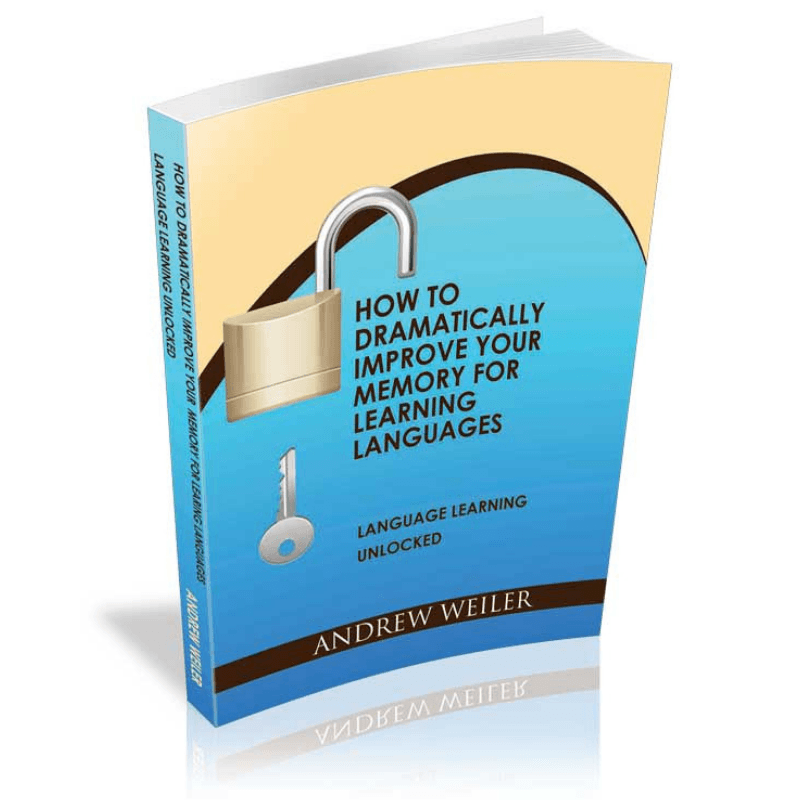An often heard lament of language learners is, "Oh my memory is letting me down". Is that really the case, or is there something else at work that gives the appearance that memory is the problem but in fact there are causes which are not so obvious?
I have just brought out an Ebook on this very subject that looks into the commonly overlooked subject of memory and shows those who care too look "under the bonnet" that the problem is more to do with how we are learning than our memory. In fact we have amazing memories for those things that are highest in our values.
- Keen sports people are able to remember chapter and verse about their favourite teams but then complain about their poor memory in learning languages.
- Students at school can remember all there is remember about their friends, their favourite musicians or their hobbies but will tell you they have a poor memory (when it comes to learning languages).
- People can remember everything about their families, their friends and their lovers but then say their memory is so poor when they are learning languages.
This Ebook - How to Dramatically Improve Your Memory for Learning Languages will show you why so many people can remember so much but forget what they are learning when we are trying to learn a language. The ebook not only shows you how you can change what you do so you will be able to recall what you are learning, but also to recall what you need when you need it.

The book is the second in the Language Learning Unlocked series of books. The first was published 2 years ago in both a hard copy version and an Ebook version.
I have written elsewhere on this blog about memory a number of times. So what you find will find in this Ebook will not be unfamiliar to those of you familiar with these posts and in fact to what else you will find in these pages on the site.
However you will find a lot more. I have gone into a level of detail not really possible in a site of this nature. I have also teased out new areas of enquiry as well as delved into other areas that I believe will be of real interest to any committed language learner.
Amongst many other things, you will find that memory is more a function of interest than of effort; that it functions well when we are absorbed in what we are doing rather than involved in repetitive activities; that it works better when we are more at ease rather than when we are under a lot of pressure. Even if your memory seems to be diminishing for some reason, you will find practices that can work around that and suggestions that may even turn around that deterioration.

[…] more recent Ebook, How to Dramatically Improve Your Memory for Learning Languages, reveals just why so many people say that their poor memory is stopping them. He claims that once […]
[…] Maslow’s saying “If all you have is a hammer, everything looks like a nail“. The problem is not with our memory. The problem lies with how we approach […]
[…] Most of the articles I have seen on how to improve memory don’t necessarily relate to the needs of language learners. I will look here at two quite different ways to improve memory, specifically for language learners. I have written a number of other articles on this site that looks also at how to improve memory for language learners. […]
[…] focus on the high frequency words in the new language. In all languages this is under 1000, sometimes a long way under. Again learn to use them in “normal speech”. Memorisation of words does not mean you can use them. Aim is use, not memorisation. There may some exceptions, depending upon your situation, but work to minimise what you memorise. There are far more effective ways of learning vocabulary than memorisation. […]
[…] Most of the articles I have seen on how to improve memory don’t necessarily relate to the needs of language learners. I will look here at two quite different ways to improve memory, specifically for language learners. The first way relates to the way you are learning, whereas the second does not. You will find a number of other articles on this site that look also at the issue of improving memory for language learners. […]